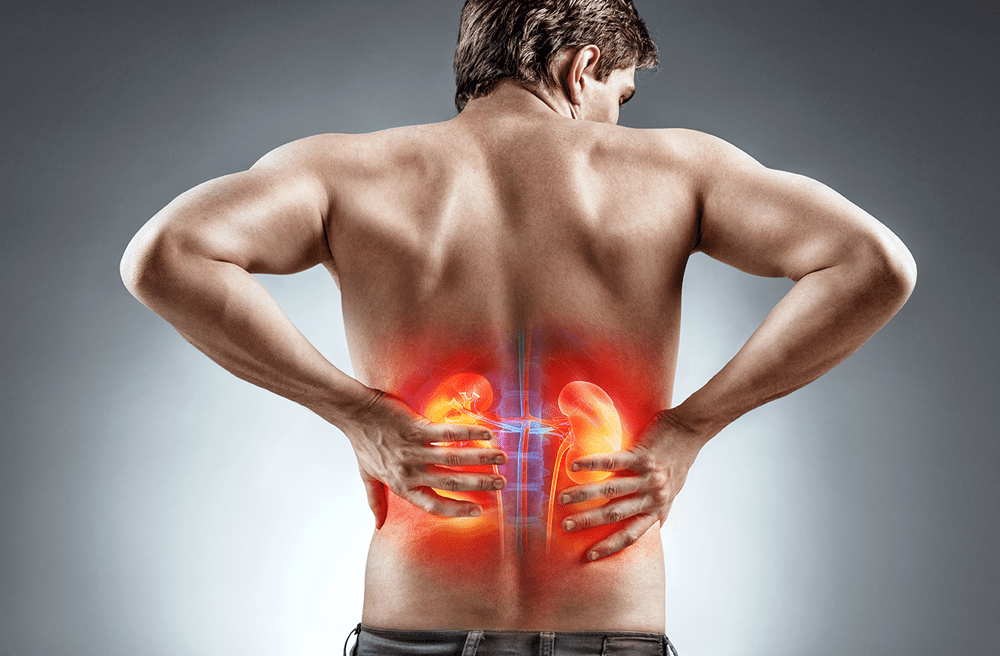
Nội dung bài viết / Table of Contents
This post is also available in: Tiếng Việt (Vietnamese)

Kidney stones are hard deposits that form in kidneys from sub-stances in the urine. This process is called nephrolithiasis. Kidney stones can be tiny or up to several inches around. Very large stones that fill the tubes carrying urine from the kidneys to the bladder (ureters) are called staghorn stones.
Kidney stones is common. It can affect patients older than 40 years old. It can be managed by reducing your risk factors. Please discuss with your doctor for further information.
About one-third of people have kidney stones, but only half of these have symptoms. Even without symptoms, stones may cause problems, such as infections and blocking urine flow. Stones getting stuck in ureters cause the symptoms.
The most common symptom is severe pain (urinary colic) that comes and goes and usually moves from the side of the back (flank) to the lower belly (abdomen). Other common symptoms include:
If a stone causes an infection, additional symptoms may be chills; fever; painful, frequent, and urgent urination; and sweating.
There may be some symptoms not listed above. If you have any concerns about a symptom, please consult your doctor.
You should contact your doctor if you have any of the following:
Stones may form if urine contains too much of certain chemicals, such as calcium, uric acid, cystine, or struvite (a mixture of phosphate, magnesium, and ammonium). Having a diet that is very high in protein and drinking too little water increase the risk of getting stones. About 85% of kidney stones are made from calcium. Uric acid stones occur more often if gout is present. Struvite stones form more often in infected urine (infection stones).
There are many risk factors for kidney stones, such as:
The information provided is not a substitute for any medical advice. ALWAYS consult with your doctor for more information.
Treatment depends on several things, such as the size and number of stones, where they are, and whether an infection is present. Most stones pass out of the body without a doctor’s help. The simplest way to treat a small stone is to flush it out by drinking lots of fluid. Medicine may help relieve pain. Antibiotics are given for an infection.
Stones that do not pass by themselves may need removal by a urologist. A urologist is a doctor who specializes in diseases of the urinary system. The urologist may use a long, thin tool (ureteroscope) to do this.
Sometimes, shock waves are used to break the stone into smaller pieces that can be passed. This treatment is called extracorporeal shock wave lithotripsy (ESWL).
Occasionally, surgery may be needed to remove the stones (percutaneous nephrolithotomy).
The doctor takes a medical history, does a physical examination, and tests the urine. An x-ray or ultrasound study of your abdomen may be needed. These studies will uncover most stones (calcium, cystine, and struvite stones). X-rays cannot show uric acid stones and also may miss smaller stones. Computed tomography (CT) of the urinary tract is an excellent test to diagnose stones and look for other disorders that can cause symptoms similar to kidney stones.
Very rarely, if the diagnosis is still unclear, a special x-ray study (intravenous pyelogram, or IVP) may be done. In this study, dye is used to outline the uri-nary tract and look for the stone.
See more: Acute Glomerulonephritis
What are some lifestyle changes or home remedies that can help me manage kidney stones?
The following lifestyles and home remedies might help you cope with kidney stones:
If you have any questions, please consult with your doctor to better understand the best solution for you.
Sources: